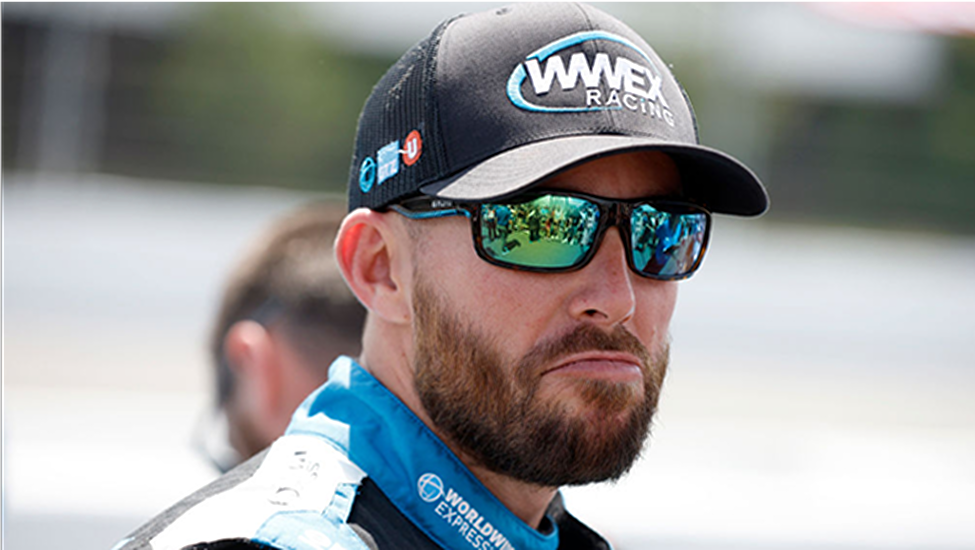By Charles Robinson and Dan Wetzel, Yahoo! Sports 39 minutes ago
Ohio State coach Jim Tressel was informed that several Buckeyes players were selling memorabilia more than eight months before the school claims it was made aware of the scheme, a two-month Yahoo! Sports investigation has found.
Tressel received information that players were selling items to Edward Rife – the owner of Fine Line Ink Tattoos in Columbus – as early as April 2010, according to a source. However, neither Ohio State nor the NCAA investigated the transactions or the players’ relationship with Rife until December 2010, when the school claims it was informed of the situation by the local United States Attorney’s office.
Ohio State director of compliance Doug Archie declined immediate comment when reached Monday by Yahoo! Sports. Tressel and athletic director Gene Smith were unavailable for comment. The NCAA declined comment.
A federal probe into Rife revealed he was in possession of multiple pieces of Buckeyes football memorabilia that previously belonged to five players: quarterback Terrelle Pryor, running back Dan Herron, wideout DeVier Posey, defensive end Solomon Thomas and offensive lineman Mike Adams. Federal officers contacted the school Dec. 7 to determine if the goods were stolen or instead sold by the players for cash, as Rife claimed.
According to a source, a concerned party reached out to Tressel last April, alerting the coach that memorabilia transactions had taken place between Rife and a handful of Buckeyes players, including Pryor. The selling of items violates NCAA eligibility rules. The source said Tressel was troubled by the information, and the coach indicated that he would investigate the matter and take appropriate action.
Whether the coach initiated an investigation of the accusation is unclear, but all five players remained on the field in the coming months, playing out the 2010 regular season.
After Ohio State alerted the NCAA of the memorabilia sales in early December, the NCAA’s student-athlete reinstatement staff ruled the players were banned from the first five regular-season games of 2011. The players also had to repay the improper benefits gained – $2,500 for Pryor, $1,505 for Thomas, $1,250 for Posey, $1,150 for Herron and $1,000 for Adams. Linebacker Jordan Whiting also had to pay $150 to a charity for receiving a discounted tattoo.
But in a controversial part of the decision – which included lobbying by Big Ten commissioner Jim Delany, according to Smith – the NCAA’s reinstatement staff ruled in late December that the five players were eligible for the 2011 Sugar Bowl game against Arkansas.
At a Dec. 23 press conference, Smith claimed the school first became aware of the memorabilia sales on Dec. 7. Smith said the athletic department was told the following day and immediately launched an investigation.
If Tressel failed to inform Smith or the Ohio State compliance department about the players’ dealings with Rife, he could be charged with multiple NCAA violations including unethical conduct, failure to monitor and a failure to promote an atmosphere of compliance. In general, a coach is required to act on, or pass along reasonable information about possible rule violations for further investigation.
Section 4.1(d) of Tressel’s contract with Ohio State stipulates that he “supervise and take appropriate steps to ensure … members of the Team know, recognize and comply with any such laws, University Rules and Governing Athletic Rules and immediately report to the (Athletic) Director and to the (Athletic) Department’s Office of Compliance Services in writing if any person or entity, including without limitation, representatives of Ohio State’s athletic interests, has violated or is likely to violate any such laws, University Rules and Governing Athletic Rules.”
Section 5.1 (m) of his contract also states that failure to promptly report “any violations” could lead to “termination by Ohio State for cause.”
Ohio State itself could be cited with playing ineligible players and forced to vacate its 2010 season, when it won a share of the Big Ten championship and finished 12-1. It could also face further sanctions for major infractions.
Smith was adamant at the Dec. 23 news conference that no one at Ohio State knew of the situation until the U.S. Attorney contacted them in early December.
“The athletic department was informed on Dec. 8,” Smith said.
At the Dec. 23 news conference, Smith made a point of running through the timeline of the case and thanking federal authorities for bringing the information to the university so it could act. He detailed each step of the 10-day investigation and subsequent dealings with the NCAA and Big Ten office, right up to being told of suspensions by the NCAA on the afternoon of Dec. 22.
Tressel neither corrected Smith nor publicly expressed any prior knowledge of the case. He intimated he had found out about the memorabilia sales recently saying he needed time to recover from the disappointment. “I’m trying to let the holidays temper me down so I’ll be more jolly on the 26th,” Tressel said.
Tressel expressed disappointment with the players after the suspensions were announced, stating that while Ohio State should’ve done a better job explaining the rules on memorabilia sales, the players’ probably knew they were doing something wrong.
“I think we all have a little sensor within us, ‘Well, I’m not sure if I should be doing this,’” Tressel said. “And then sometimes it gets overridden by what you think your necessity is. …”
“There’s a gut-wrenching feeling when you lose a game and you know you could’ve done better,” he continued later. “And then there’s one that goes beyond when you don’t feel as if you did what you should do as people. So whatever the next step of gut-wrenching is, that’s the way you feel. And we feel a responsibility for our kids on and off the field. Obviously, it’s painful.”
Tressel also suggested that the responsibility of rules compliance ultimately falls on the coaching staff.
“I think ultimately we as coaches feel as if the buck stops here – that we’re the ones that need to make things even more crystal clear than when a compliance officer might spend time with our team or an outside speaker or whatever it happens to be,” he said. “The bottom line is that we feel as if that’s our responsibility, so obviously we don’t feel good about the fact that we fell short.”
According to the Ohio State investigation, the five players sold multiple items to Rife, who displayed some of the memorabilia on his Facebook page. Among the pieces sold were Pryor’s 2009 Fiesta Bowl sportsmanship award, Herron’s jersey, multiple Big Ten championship rings and multiple golden pants pendants awarded to the players for victories over the University of Michigan. Pryor, Posey, Herron, Thomas and Whiting were also cited for receiving discounted tattoos from Rife.
The Columbus Dispatch reported on Jan. 2 that Pryor had been “stopped for traffic violations on three separate occasions while driving cars that were owned by a car salesman or a Columbus used-car lot where the salesman worked.” He’d also been allowed to test drive a car for the weekend to his home in Pennsylvania.
Archie said the school knew of two of the incidents and had deemed nothing improper. He said the school would investigate the third traffic stop in a borrowed car. There has been no update on that internal investigation.
Tressel, 58, has been a head coach for 25 years, the last 10 at Ohio State. His Buckeye teams have won at least a share of the last six Big Ten titles and captured the 2002 BCS national championship.




Comment